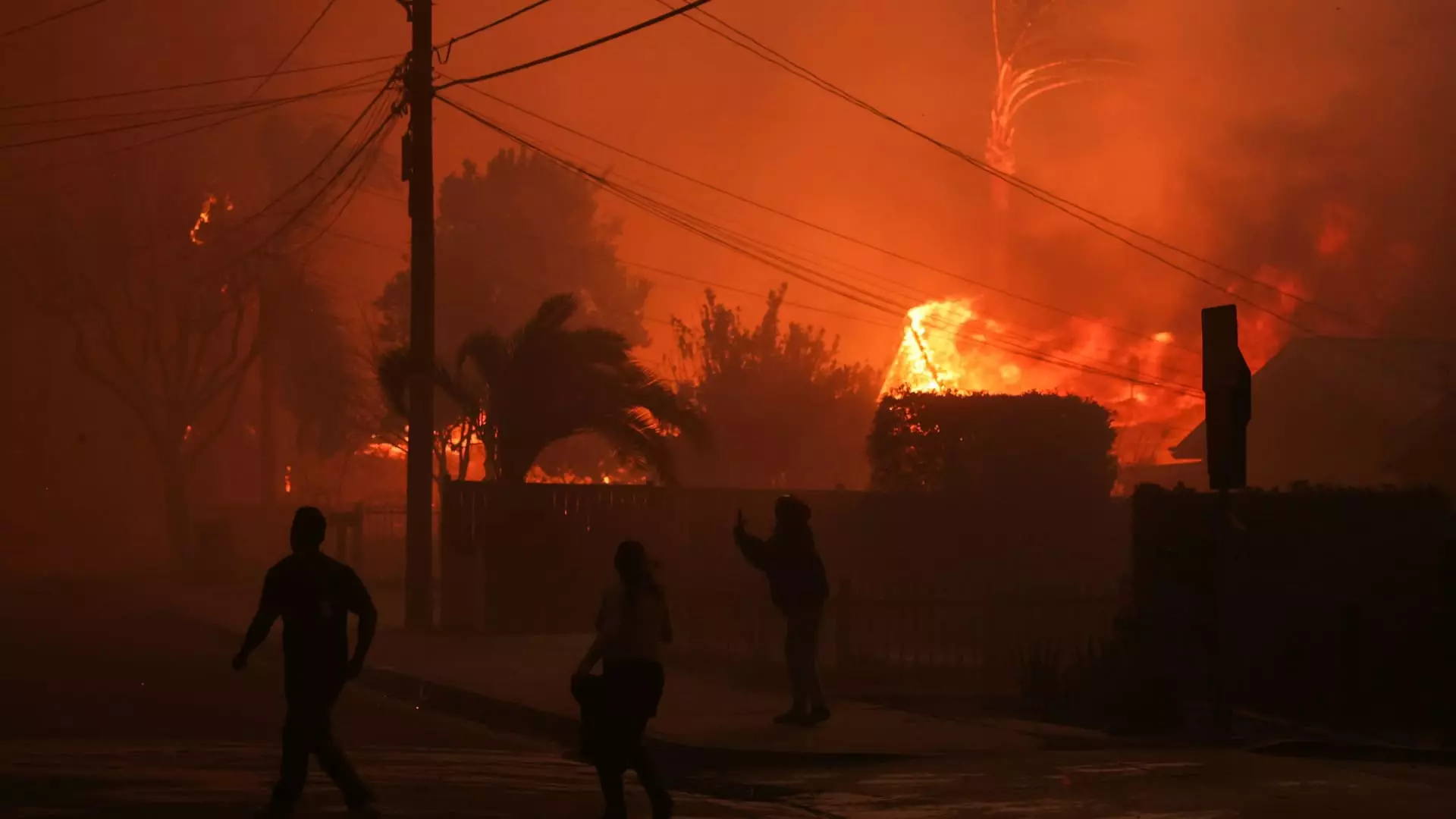In recent weeks, California’s wildfire season has intensified, severely affecting both communities and local businesses. Among the companies facing significant stock pressure is Edison International, the parent company of Southern California Edison (SCE), which provides power to the Los Angeles area. On a particularly volatile Wednesday, the company’s shares plummeted by 13%, reflecting a broader trend within the energy sector during crisis periods. Investors are rattled by the specter of wildfires and adverse weather patterns, exacerbating fears of potential liabilities linked to these devastating events.
The current wildfire crisis underscores long-standing challenges faced by public utilities in California. Historical incidents have sparked debates about the responsibilities of power companies in fire prevention and emergency preparedness. Although public and regulatory scrutiny has increased, the direct link between utility operations and wildfire ignition remains murky. For instance, while there have been previous allegations targeting Edison and similar companies, recent data revealed that SCE had not filed any incident reports suggesting its equipment was a cause of the current fires.
However, the potential for financial repercussions looms large. Bank of America analyst Ross Fowler noted that, while there is no definitive evidence implicating SCE in fire initiation, the company is likely facing increased expenses related to firefighting and infrastructure damage. The impacts of previous financial catastrophes, such as the bankruptcy filing by Pacific Gas and Electric in 2019, linger in the minds of investors, highlighting how wildfire-related liabilities can jeopardize utility companies.
The atmosphere of anxiety among investors is palpable, primarily characterized by a “sell first, ask questions later” mentality. This cautious approach has been influenced heavily by the uncertainty surrounding wildfire containment efforts in the region. Jefferies analyst Julien Dumoulin-Smith emphasized that, despite the existing protections from the 2020 legislative measure AB 1054, which limits utility companies’ liabilities, the market remains jittery. His observations about investor conversations reveal an underlying apprehension that could result in widespread sell-offs if containment efforts lag.
The overarching volatility does not merely affect Edison. Other utilities, such as PG&E and Sempra Energy, are also witnessing declines in their stock prices, falling 4% and 3%, respectively. Sempra’s representative announced proactive measures to temporarily shut off power to roughly 7,000 customers due to escalating fire risks, illustrating the preventative strategies utility companies are compelled to adopt amid heightened fire threats.
As wildfires continue to rage across California, the intricate relationship between environmental challenges and financial health for utility companies becomes increasingly critical. Edison International and others in the sector must navigate a treacherous landscape, balancing the demands for safe energy provision with the profound risks posed by natural disasters. With investor sentiment remaining cautious and legislative protections in place, the future of utility stocks amidst wildfire uncertainty will undoubtedly continue to evolve, and stakeholders must be prepared for ongoing fluctuations in this complex market.

